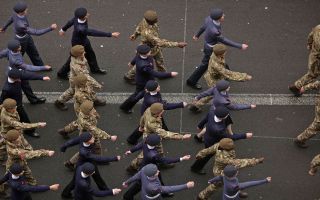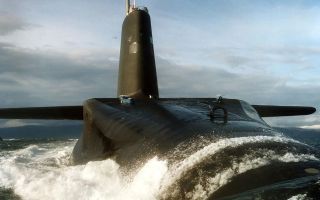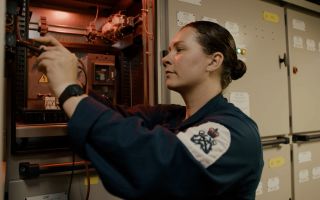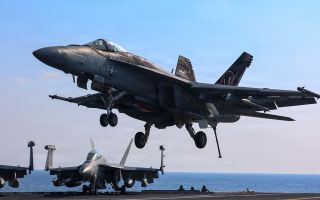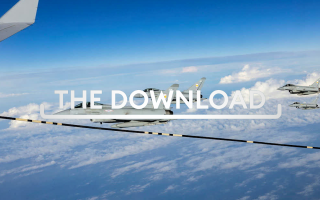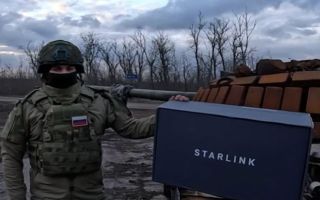You have to spend 5% or start learning Russian: Nato warning from SDR lead author
The UK must prepare for a more dangerous and uncertain world, according to senior reviewers behind the Strategic Defence Review (SDR), who warn that threats from Russia, shifting US priorities, and rapid changes in warfare demand urgent action.
The review calls for sweeping changes across the Armed Forces – from autonomous submarines to more lethal ground forces.
But its external reviewers say that how the UK responds to current geopolitical pressures will determine whether the review's ambitious recommendations are implemented at the right pace.
How does President Trump's America First policy and uncertainty over its security commitments impact SDR?
General (Retired) Sir Richard Barrons, one of the SDR reviewers, said the impact of the US stepping back from global commitments remains a key variable.
"That degree of uncertainty about whether the American exit is a… a cliff edge which hasn't occurred, or whether it's a decline, which we can manage," he said, "I think that that is going to play into the future debates about the speed of the implementation of the review."
Why is upping defence spending and implementing SDR so important?
Fellow reviewer Lord Robertson, a former Secretary General of Nato, pointed to the war in Ukraine as a wake-up call.
"People thought they were safe in eastern Ukraine… and suddenly they weren't," he said. "The defence of the country – it's not just the responsibility of the Ministry of Defence or the people who happen to be in uniform at any particular time."
He continued: "It's a responsibility for all of us. And if we are not safe, we need to pay the premium in order to be insured."
Lord Robertson also referenced a blunt warning from Nato's current Secretary General Mark Rutte: "You have to spend 5% or you start learning Russian. Now, that's a pretty blunt message for the Secretary General of a 32-nation alliance to come and deliver."
How serious are the threats to the UK?
Dr Fiona Hill, an expert on Russia and a fellow SDR reviewer, said the UK is already under sustained hybrid attack from Moscow.
"The United Kingdom, like every other European country, is under constant attack and assaults, from Russia, cyber intrusions, political influence operations," she said.
Dr Hill cited previous incidents, including the radioactive poisoning of Alexander Litvinenko and the Novichok attack in Salisbury, and said intelligence services continue to warn of sabotage operations and agent recruitment on UK soil.
"We're actually in the midst of… really, as Gen Barrons and Lord Robertson have said… an unprecedented period in the last 20, 30 years. We're under constant stress at all times."
Where does the use of FPV attack drones fit with the future of UK Armed Forces?
Gen Sir Richard said drones are central to modern warfare, but the UK and Nato must prepare differently from Ukraine.
"We are seeing the primacy of drones in the way the war is turning out in Ukraine," he said.
But he cautioned that the West would not fight the same kind of war and must instead prepare for a new arms race between drone and counter-drone technologies.
"Drone technology is about to go through one of those cycles where counter-drone technology will reset the balance… They will very definitely still be vital, but they'll come in two shapes. Big, expensive ones you want to come back – and then consumable ones."
He warned against building up "a warehouse full of increasingly obsolescent consumable drones" and instead called for "the ability to know how you get them made and update them… particularly the electronic warfare capability, at the speed of the war you end up fighting."

